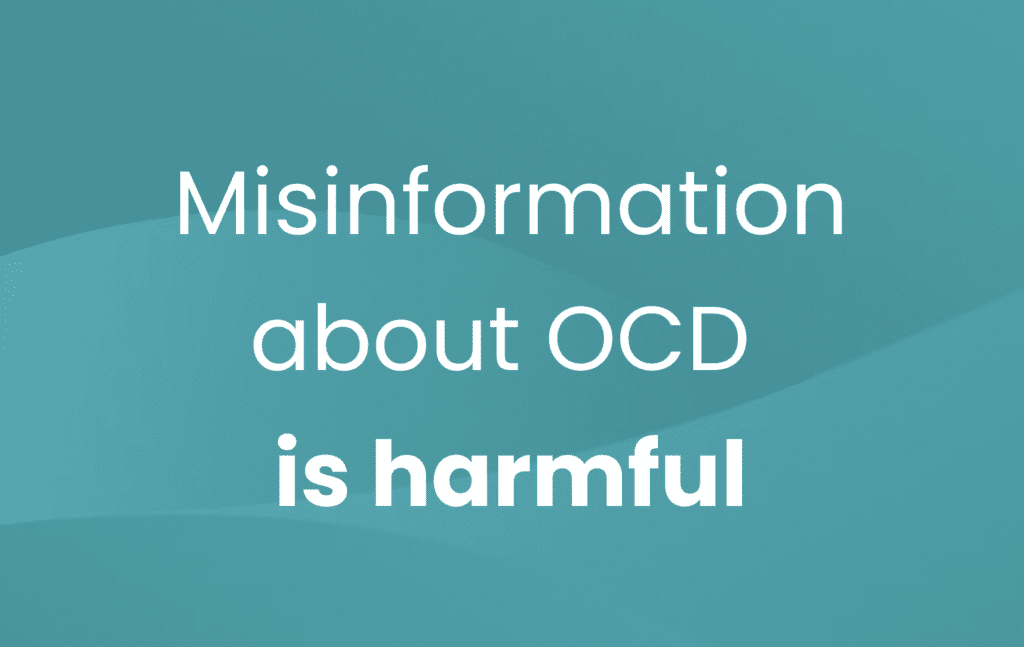It has come to our attention that a number of false, misleading, offensive, and extremely harmful articles about OCD and the OCD community have been published in recent months, particularly in the New York Post.
Make no mistake: any statement or article that suggests a connection between OCD and harmful or violent behavior, beliefs, or attitudes is false, unsupported by scientific evidence, and rooted in misinformation and stigma about OCD.
We know all too well how harmful and distressing false information like this can be for people with OCD. Many people with OCD are already consumed with fear about harming others, which is why statements like these are especially damaging. We want to be as clear as possible: all attempts to characterize people with OCD as dangerous are completely unfounded and unsupported by evidence. The fact that such offensive and inaccurate articles are being published today is a stark reminder that combating the misinformation and stigma around OCD is as important today as it has ever been. If more people understand what OCD really is, fewer people will suffer.
If you notice that misinformation about OCD being published is distressing or triggering, remember that OCD feeds on doubts about yourself and your values, and that obsessions and distressing thoughts do not mean anything about you, your values, or your beliefs. You are able to tolerate anxiety and uncertainty about your obsessions while living life true to your values.
A particularly harmful recent article from the New York Post attempts to use intense bigotry and inflammatory stereotypes to connect people suffering from OCD with radical, violent behavior and ideology, and the author uses an unvalidated and deeply flawed study to support their arguments. It is necessary for us to refute the article’s claims strongly, for several reasons:
- It repeats harmful stereotypes about OCD without any support;
- It misleadingly, falsely connects the OCD community with harmful or violent ideology and behavior;
- It uses the widely misunderstood and stigmatized OCD community in an attempt to malign other vulnerable populations and dedicated advocates.
The article also claims that scientific evidence supports its outrageous claims, citing recent research as support for its baseless claims. The study it cites, however, cannot be used to draw such conclusions, for a number of serious reasons:
- It has not been validated or peer-reviewed by any reputable scientific journal or publisher and is accessible only in preprint;
- It relies on a confusion of obsessive ideological beliefs with obsessions in OCD, conflating vastly different experiences and behaviors with one another;
- Its central distinction—i.e., “peaceful” vs. “violent” activist beliefs—relies on methodology and materials from a study that uses neither of these terms, and which explicitly warns against using its findings in studies on other or general populations;
- Its data is inconsistently and inaccurately presented at several points;
- Its data was collected using an incomplete, severely abridged version of the Yale-Brown OCD symptoms scale;
- It misleadingly uses highly similar language to assess radical ideological beliefs and OCD within the same survey, without citing any clinical review of the language used;
- Its premise relies on a connection between Obsessive Passion and OCD, which it does not substantiate with peer-reviewed sources.
For these and other reasons, it is shameful and irresponsible to cite such a flawed document to support inflammatory claims about the OCD community, a population all too familiar with offensive misunderstanding and stigma.
As an organization that is dedicated to serving the OCD community, combating lasting and harmful stereotypes and misinformation about OCD, and helping people who suffer, we cannot stand by while misinformation about the OCD community is published and platformed. Furthermore, attempting to use offensive and misinformed characterizations about the OCD population as a cudgel against other vulnerable populations and dedicated advocates is unacceptable.
We call for the platforms that have published such misleading and harmful content to retract these articles and issue an apology to the OCD community and others who have been impacted.

